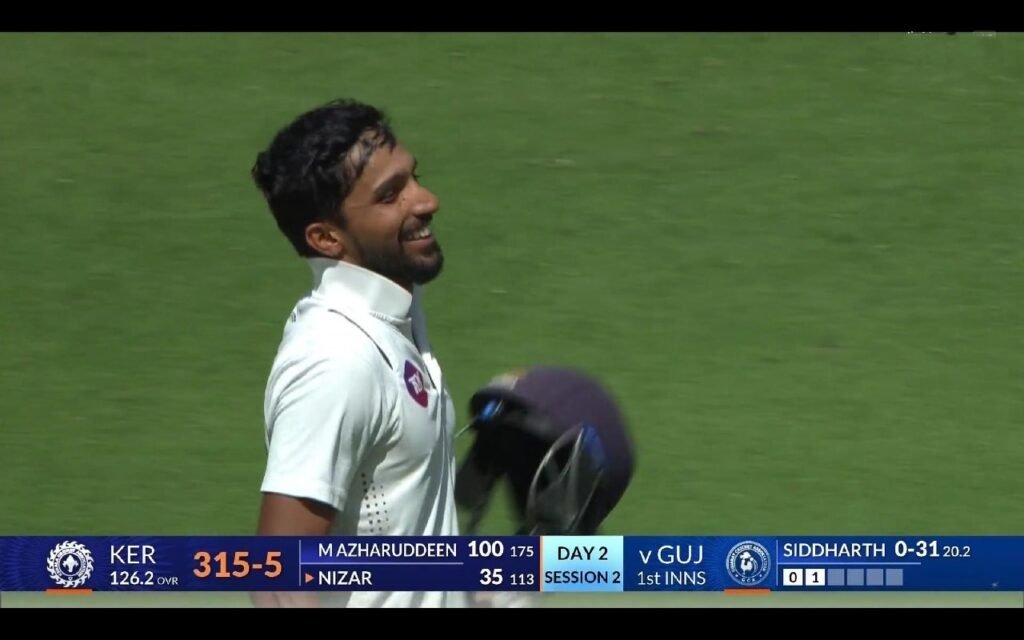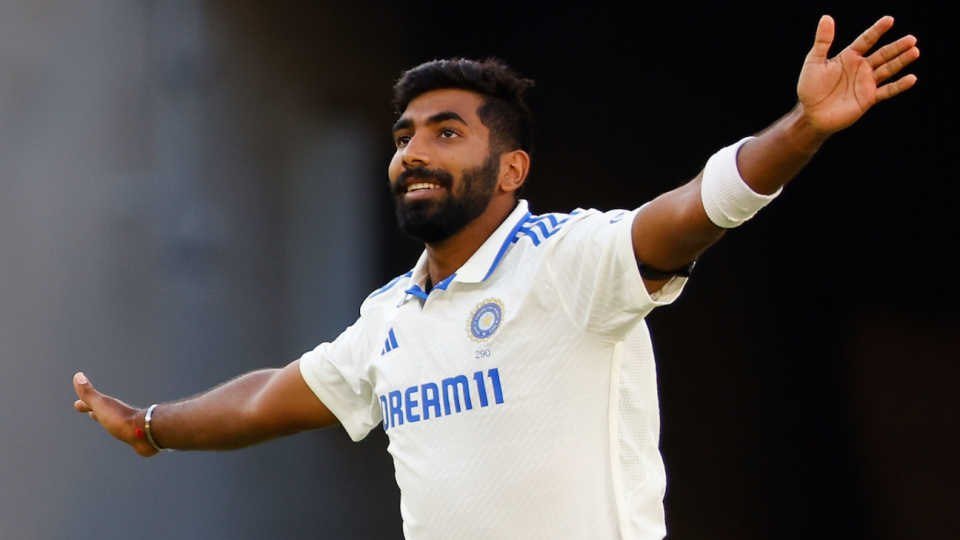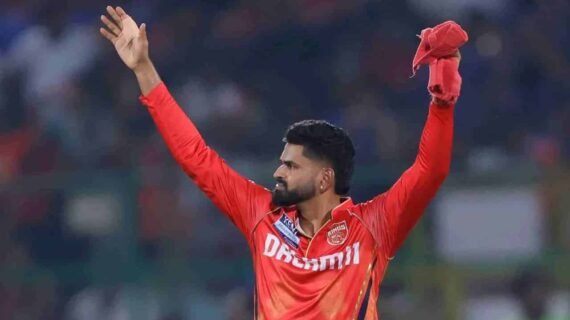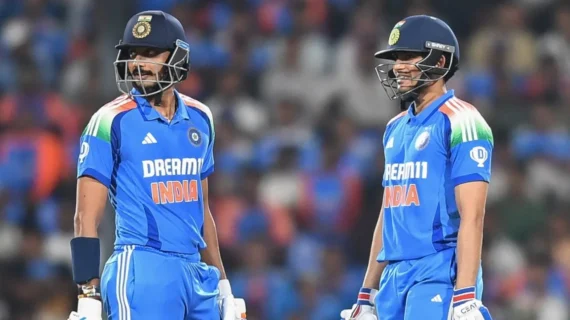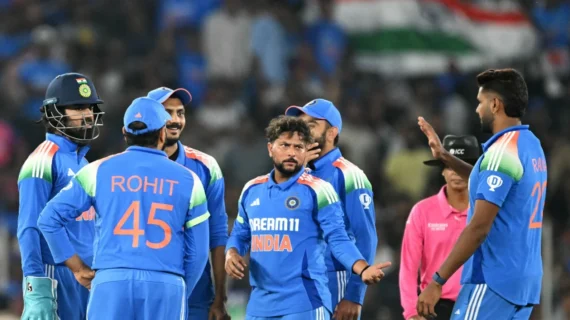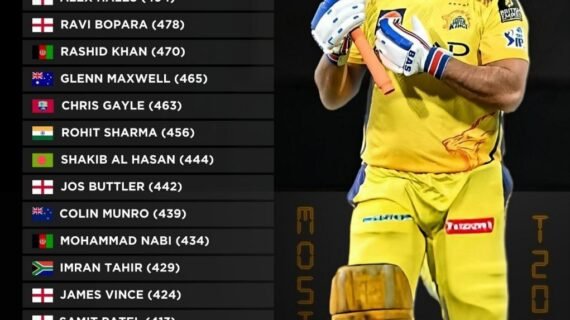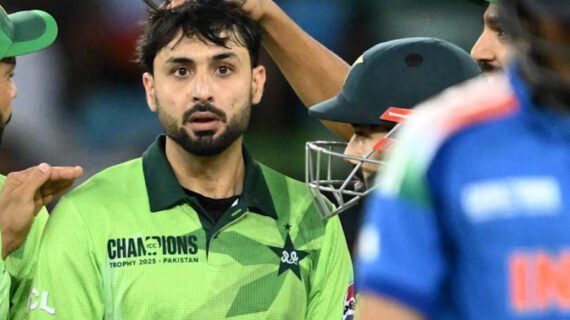Now Reading: 🏏 The Calm in the Chaos: How Captain Shubman Gill is Winning Hearts in the Dressing Room
-
01
🏏 The Calm in the Chaos: How Captain Shubman Gill is Winning Hearts in the Dressing Room
🏏 The Calm in the Chaos: How Captain Shubman Gill is Winning Hearts in the Dressing Room
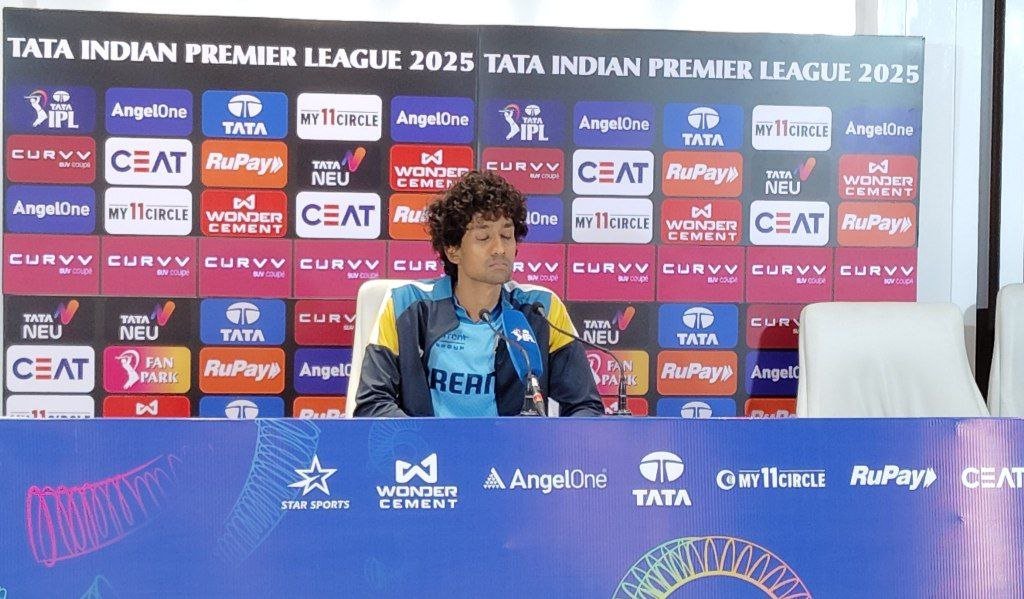
By CrickTip | Cricket Insights Blog | 22 April 2025
In a game of fine margins, where pressure can make or break players, it’s often the calmest heads that emerge as true leaders. Shubman Gill, one of India’s most promising young batters, is now proving his mettle as a captain — not just with the bat, but with how he manages his team.
Recently, Ravi Sai Kishore, the talented left-arm spinner from Gujarat Titans, opened up about what it’s like playing under Gill’s leadership — and the praise was both heartfelt and telling.
🗣️ “The Way Shubman Handles the Spinners… It Helps.”
In an age where captains are expected to be not just tacticians but also motivators and mentors, Gill is embracing the role with quiet authority. Sai Kishore, who has played a key role in Titans’ bowling attack, highlighted one particular strength of Gill that has gone under the radar — his relationship with his bowlers, especially the spinners.
“The way Shubman handles the spinners in the team — giving them pointers and stuff — it helps.”
It may sound simple, even understated. But in the context of high-pressure T20 cricket, that kind of personal attention and guidance from a captain can be invaluable. For young bowlers like Sai Kishore, who are still making their mark, it’s the kind of support that builds confidence and clarity.
🧠 Shubman the Thinker: A Captain Who Studies the Game
Behind Gill’s stylish strokeplay lies a deeply analytical cricket brain. According to insiders, he’s someone who spends time understanding his bowlers — what they like, what makes them tick, and how they can be most effective under different conditions.
Sai Kishore explained that Gill often offers precise, situation-based feedback — whether it’s about line and length, how to attack a specific batter, or how to adapt to changing pitch behavior.
This is not just token leadership. It’s involvement. It’s the kind of captaincy that goes beyond post-match speeches and huddle pep talks. Gill’s approach reflects a modern, player-centric leadership style — one built on communication and empowerment.
👂 A Leader Who Listens as Much as He Talks
One of the things that stands out about Gill’s captaincy is his approachability. He doesn’t lead with ego. He leads with empathy.
Sai Kishore hinted at a dressing room atmosphere where ideas flow both ways. Young bowlers aren’t afraid to speak up or make suggestions — a rare culture in competitive cricket. That kind of two-way respect speaks volumes about the kind of leader Gill is becoming.
“He doesn’t just tell you what to do — he talks to you. He hears you out. That makes a big difference,” says a team source.
🧵 Building the Bowling Blueprint: A Long-Term Vision
While much of the attention in T20 cricket often falls on the batting fireworks, Gill has placed a strong emphasis on developing a solid bowling unit — especially spin. In a format where spinners can go from match-winners to scapegoats in a matter of overs, having a skipper who backs them relentlessly is a massive advantage.
Under Gill’s leadership, spinners like Sai Kishore have had the freedom to experiment, take risks, and learn — without the constant fear of being dropped or criticized for a bad over. That sort of backing allows for organic growth, both as players and as a cohesive bowling unit.
💡 Leadership That Grows With the Game
Let’s not forget — Shubman Gill is still only 25. He’s learning, evolving, and yet already commanding the kind of respect that many veteran captains struggle to earn.
He leads not with aggression, but with precision, poise, and presence. And he doesn’t just play the game — he studies it, dissects it, and then translates that knowledge into clear, actionable support for his teammates.
This ability to balance personal performance with team management, especially in a demanding league like the IPL, bodes well for Gill’s future — not just as a captain in franchise cricket, but possibly as a long-term leader for Team India.
🌟 The Bigger Picture: A Glimpse into the Future
Shubman Gill has long been seen as the torchbearer of India’s next-generation batting lineup. But with every match he captains, every spinner he mentors, and every tactical move he gets right, he’s also making a quiet but compelling case to be India’s next big leader.
Players like Ravi Sai Kishore aren’t just echoing praises for the sake of it — they’re reflecting a shift in how leadership is being perceived in Indian cricket. Less of the loud huddle speeches and more of the one-on-one chats, subtle encouragement, and mutual respect.
In a cricketing culture that’s evolving rapidly, Shubman Gill may just be the perfect blend of old-school calm and new-school smarts.
🖋️ Final Thoughts
As Sai Kishore rightly pointed out, it’s the little things — the pointers, the conversations, the trust — that often go unnoticed by fans but make all the difference in the dressing room.
And in those moments, Shubman Gill isn’t just a captain. He’s a connector. A mentor. A builder of belief.
And maybe, just maybe, the leader Indian cricket has been quietly waiting for.
📢 Want more behind-the-scenes stories from cricket’s rising stars? Stay tuned. Follow us for exclusive interviews, match analysis, and cricketing insights that go beyond the boundary.
- Advantage Sample 1
- Disadvantage Sample 1












